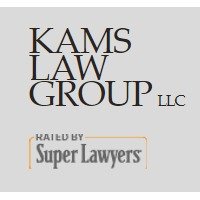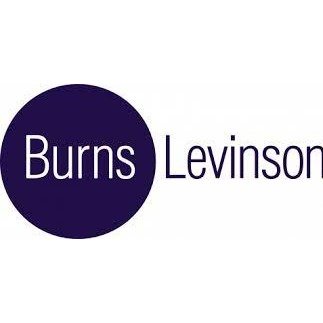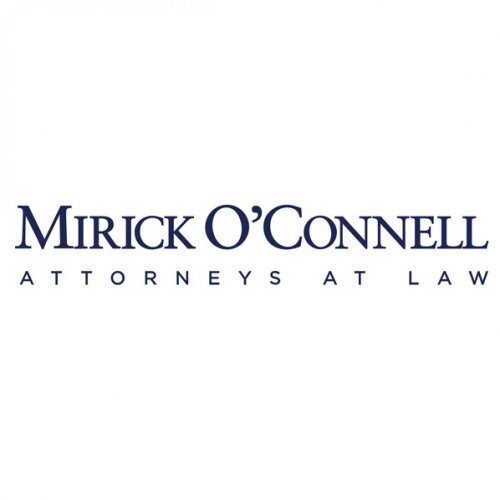Best Sanctions & Export Controls Lawyers in Massachusetts
Share your needs with us, get contacted by law firms.
Free. Takes 2 min.
Or refine your search by selecting a city:
List of the best lawyers in Massachusetts, United States
About Sanctions & Export Controls Law in Massachusetts, United States
Sanctions and export controls are crucial components of United States law designed to regulate trade, services, and financial transactions with foreign individuals, entities, and countries. These laws help to protect national security, promote foreign policy objectives, and restrict access to goods, technology, or resources that might be used for unlawful or harmful purposes. In Massachusetts, while federal regulations largely govern sanctions and export controls, local businesses, universities, and individuals must comply with both federal and any applicable state requirements. Missteps can result in severe civil and criminal consequences, making it important for anyone involved in international trade or cross-border dealings to have a clear understanding of these laws.
Why You May Need a Lawyer
There are numerous situations in which individuals or businesses may require legal assistance with sanctions and export controls in Massachusetts. These include:
- Exporting goods, technology, or software from the United States to foreign countries.
- Importing products that may be subject to U.S. sanctions.
- Conducting business with customers or suppliers located in countries subject to comprehensive or targeted U.S. sanctions programs.
- Receiving inquiries or audits from U.S. agencies such as the Office of Foreign Assets Control (OFAC) or the Bureau of Industry and Security (BIS).
- Responding to government investigations or enforcement actions related to potential sanctions or export violations.
- Conducting due diligence on partners, vendors, or customers to ensure compliance with U.S. laws.
- Seeking guidance on compliance programs, license applications, or voluntary disclosures.
A lawyer with experience in sanctions and export controls can help navigate complex legal rules, reduce risk, and ensure your activities align with current laws and regulations.
Local Laws Overview
In Massachusetts, sanctions and export controls are primarily governed by federal regulations, including the Export Administration Regulations (EAR), International Traffic in Arms Regulations (ITAR), and rules administered by the U.S. Department of the Treasury's Office of Foreign Assets Control (OFAC). Massachusetts businesses and research institutions must also comply with local policies, especially regarding academic research and technological development to prevent the unauthorized transfer of sensitive information. Local authorities may assist with enforcement and are often first responders in identifying potential violations. It's crucial for Massachusetts organizations to stay updated on evolving federal and local compliance expectations.
Frequently Asked Questions
What are U.S. sanctions and export controls?
U.S. sanctions are restrictions imposed by the federal government on trade, financial transactions, or other dealings with specific countries, entities, or individuals. Export controls limit or prohibit the export, re-export, or transfer of certain items, technology, or software due to national security concerns or foreign policy reasons.
Do Massachusetts companies have unique obligations under sanctions and export controls?
While federal law prevails, Massachusetts-based companies must ensure their activities align with both U.S. regulations and any state policies on compliance, including reporting suspicious activities and safeguarding sensitive technologies, especially within the academic and high-technology sectors.
What is OFAC and what role does it play?
The Office of Foreign Assets Control (OFAC) is part of the U.S. Department of the Treasury. It administers and enforces economic and trade sanctions based on U.S. foreign policy and national security goals, targeting foreign countries, regimes, terrorists, and other threats.
What types of items are subject to export controls?
Export controls can apply to physical goods, software, technology, blueprints, and even certain services. Items commonly controlled include advanced electronics, encryption software, aerospace technology, and chemicals.
Can universities and research institutions in Massachusetts be affected?
Yes, universities, laboratories, and research facilities must comply with export controls that restrict the sharing of controlled technology and information with foreign nationals or entities, both inside the U.S. and abroad.
What are the penalties for violating sanctions or export controls?
Violations can lead to substantial civil fines, criminal charges, loss of export privileges, and reputational damage. Fines can range from thousands to millions of dollars, and some violations may lead to imprisonment.
Do I need an export license for all international shipments?
Not all exports require licenses, but certain destinations, end users, or items may trigger licensing requirements. Determining whether a license is needed depends on the Export Control Classification Number (ECCN), destination country, end user, and intended use.
What are “deemed exports” and why do they matter?
A deemed export occurs when controlled technology or information is released to a foreign national in the U.S., treated as an export to the individual’s home country. This is relevant in workplaces and educational institutions with international personnel.
How can Massachusetts businesses stay compliant?
Businesses should implement robust compliance programs, conduct regular training, screen transactions and customers against government lists, and seek legal advice when in doubt. Regular audits and updates are vital for ongoing compliance.
What should I do if I discover a potential violation?
If you suspect a violation, consult a legal professional immediately. Voluntary disclosure to authorities may reduce penalties. Prompt action is essential to minimize legal and financial risks.
Additional Resources
If you are seeking more information or assistance, consider reaching out to these helpful resources:
- U.S. Department of Commerce, Bureau of Industry and Security (BIS)
- U.S. Department of State, Directorate of Defense Trade Controls (DDTC)
- U.S. Department of the Treasury, Office of Foreign Assets Control (OFAC)
- Massachusetts Export Center
- Local trade associations and chambers of commerce
- University export control offices for academic researchers
Next Steps
If you believe your business, research institution, or activities may implicate sanctions or export controls laws, it's important to:
- Review your operations for any international dealings, products, or services that may be subject to regulation.
- Consult with an attorney experienced in sanctions and export controls to assess your compliance obligations.
- Develop or update internal compliance programs and employee training.
- Maintain records of international transactions and keep up to date with changes in the law.
- If you receive an inquiry or notice from a government agency, seek legal advice before responding.
Acting proactively can help prevent costly mistakes and protect your organization from liability. Legal professionals specializing in this field can provide tailored advice to ensure you meet your obligations under both Massachusetts and federal law.
Lawzana helps you find the best lawyers and law firms in Massachusetts through a curated and pre-screened list of qualified legal professionals. Our platform offers rankings and detailed profiles of attorneys and law firms, allowing you to compare based on practice areas, including Sanctions & Export Controls, experience, and client feedback.
Each profile includes a description of the firm's areas of practice, client reviews, team members and partners, year of establishment, spoken languages, office locations, contact information, social media presence, and any published articles or resources. Most firms on our platform speak English and are experienced in both local and international legal matters.
Get a quote from top-rated law firms in Massachusetts, United States — quickly, securely, and without unnecessary hassle.
Disclaimer:
The information provided on this page is for general informational purposes only and does not constitute legal advice. While we strive to ensure the accuracy and relevance of the content, legal information may change over time, and interpretations of the law can vary. You should always consult with a qualified legal professional for advice specific to your situation.
We disclaim all liability for actions taken or not taken based on the content of this page. If you believe any information is incorrect or outdated, please contact us, and we will review and update it where appropriate.
Browse sanctions & export controls law firms by city in Massachusetts
Refine your search by selecting a city.
















